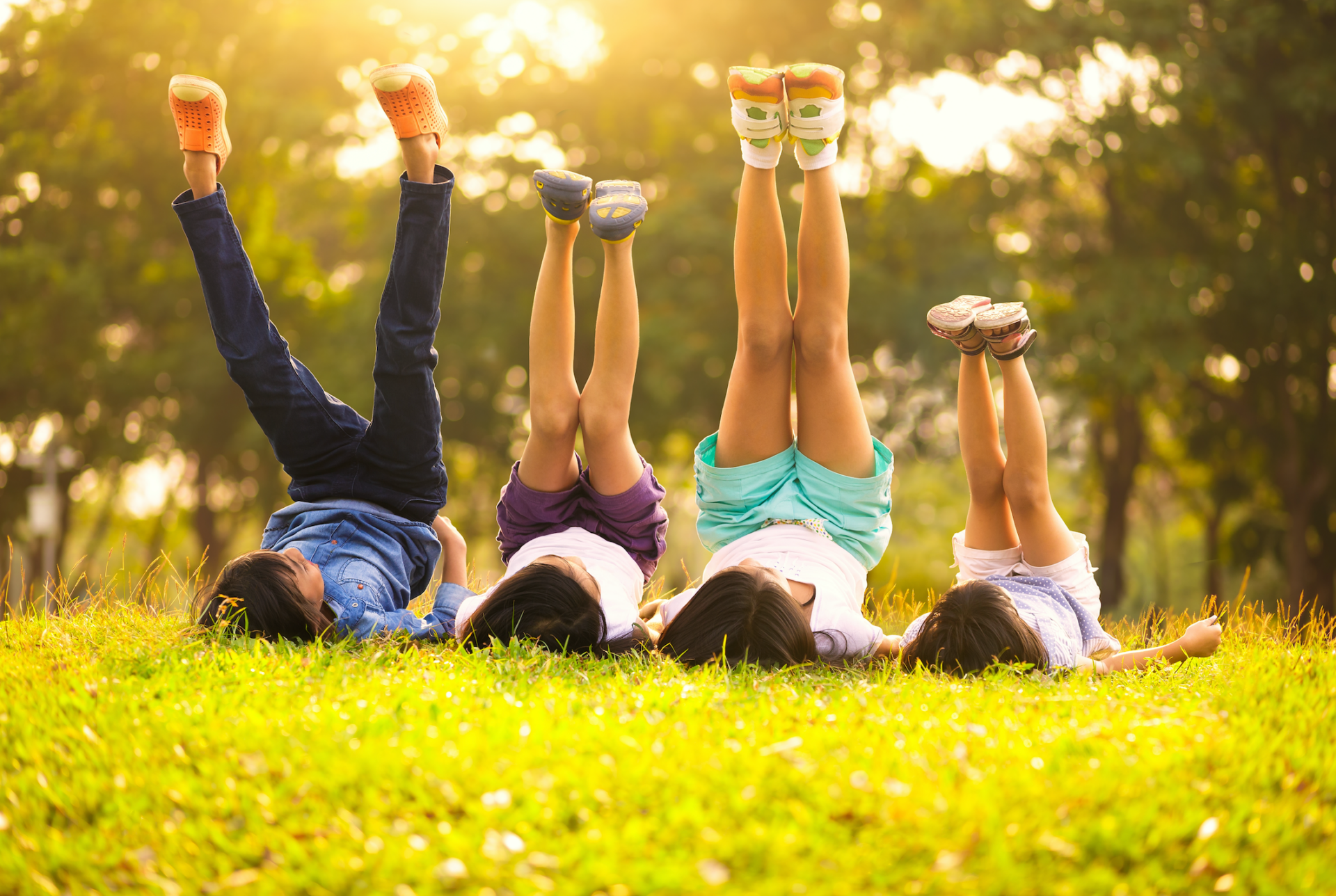Increased Anxiety and Stress During COVID-19
Our life during COVID-19 has been upended, and anxiety in children has skyrocketed. As daily life is disrupted, many kids are not attending school, and there is instability in our day-to-day routines. Millions of kids are at home attending school on zoom. Children lack necessary social interaction, and increasingly feelings of isolation are common.
During COVID, antidepressants and anti-anxiety drug prescriptions have spiked more than 34%. Insomnia drugs have jumped more than 14%. A recent report by Express Script stated, "This analysis, showing that many Americans are turning to medications for relief, demonstrates the serious impact COVID-19 may be having on our nation’s mental health."
CBD for Kids?
Cannabidiol, or CBD, is one of the hottest trends in today’s health and wellness market, and it has a long list of documented benefits for both body and mind. Research has shown that this abundant cannabis compound can boost the immune system, reduce anxiety, improve sleep and much more, but most of those studies have focused on CBD effects on adults.
Can CBD support children’s health in the same way? Maybe—but because there hasn’t been a lot of research on the effects of CBD on kids and teens, medical experts urge parents to be cautious.
Here’s what science reveals about whether CBD is safe for children.
What is CBD?
CBD is one of more than a hundred compounds found in the cannabis sativa plant and its close cousin, hemp.
Unlike another famous cannabis compound, THC (delta-9 tetrahydrocannabinol) CBD won’t cause anyone to feel high. But it can support the health of the body’s many subsystems, including the endocannabinoid system, a network of natural cannabinoid receptors found in tissues and organs throughout the body.
CBD can be extracted from the resin of both cannabis and hemp plants. But because the cannabis plant typically contains a considerable amount of THC, CBD extracts from cannabis may have some too – and that can lead to legal restrictions. But CBD from hemp typically has little or no THC, making it possible to produce and sell it freely almost everywhere in the world.
CBD is available in a variety of forms, including oils, tinctures, and isolate powders. That makes it easy to add CBD to just about anything, from your favorite recipe to a wide range of products such as candies, drinks and personal care items. CBD tinctures can be placed under the tongue for fast action, and salves and creams can be used on the skin, which is rich in endocannabinoid receptors.
CBD: Mental and Physical Effects
There’s been considerable research conducted on understanding the many effects of CBD on mental and physical health. The endocannabinoid system is a relatively recent discovery, and scientists are still working to understand all its effects on human health and development, but CBD appears to support the activity of the two main cannabinoid receptors, imaginatively called CB1 and CB2. CBD may also boost the expression and uptake of neurotransmitters in the brain related to mood and concentration, helping to calm anxiety, promote concentration, and support better sleep.
Some studies also indicate that CBD can affect pain signaling from the body to the brain to relieve the pain in many chronic conditions like arthritis and migraines.
Other research reveals that it may support the immune system, reduce inflammation, and improve circulation. These benefits may be true for children and adults, but most significant studies on the benefits of CBD for children have so far been limited to just a few severe health conditions.
CBD for Children: What We Know
The most comprehensive studies on CBD for children have focused on the use of this and other cannabis compounds to relieve the symptoms of epilepsy – a family of seizure disorders that don’t always respond to conventional anti-seizure medications.
That research has led to the development of the first cannabis-based epilepsy medication, a synthetic cannabinoid derivative called Epidiolex. This drug can relieve the symptoms of severe childhood seizure disorders such as Dravet Syndrome, which can cause multiple seizures every day.
Recent research in Israel has also investigated CBD’s potential to relieve symptoms of autism spectrum disorder, a complex set of developmental disorders that interfere with communication and social skills. Autism affects about one in every 54 children in the US, and symptoms can include severe episodes of rage, restlessness, and repetitive motions such as rocking or spinning.
Although study groups were relatively small, these studies revealed that CBD tinctures reduce restlessness, promote better focus, and calm outbursts of anger and fear in a majority of participants between the ages of 5 and 21.
Other studies suggest that CBD might be helpful for children with severe anxiety or depression, but research in these areas is limited and not conclusive. What we do know, is that research indicates that CBD is incredibly effective in reducing anxiety in adults.
Natural Cannabinoids: From Mother to Child
Endocannabinoids, the body’s natural cannabinoid chemicals, can play an important part in a child’s development, before and after birth. So far, research has identified two of these cannabis like substances – anandamide and 2-AG (2-arachidonoglycerol). These neurotransmitters bind to cannabinoid receptors throughout the body to support homeostasis, or balance, reduce inflammation, and boost immune functioning.
Compounds in the cannabis plant are so similar to these natural cannabinoid chemicals that they can trigger responses in endocannabinoid receptors, too – and that’s why cannabis and cannabis compounds can help to relieve the symptoms of a number of health conditions.
Now, research reveals that the endocannabinoid anandamide acts as a "messenger" between the uterus and an embryo as it’s being implanted in the uterine wall. This helps explain why using marijuana during pregnancy could be harmful. THC, the psychoactive compound in cannabis, is very similar in structure to anandamide, so it could interfere with this very important early signaling and affect the embryo’s survival.
Endocannabinoids are also found in human breast milk, which passes them on to a nursing infant. Researchers still aren’t sure about the effect of these chemicals on infants, but they speculate that they could help boost a child’s immune system.
The fact that natural cannabinoids are shared between mother and child might appear to support CBD’s use for treating a variety of childhood health issues. But healthcare professionals caution that although CBD and other cannabis compounds can trigger responses in the endocannabinoid receptors like natural cannabinoids do, these two types of chemicals aren’t identical – and it’s still unclear what effect an external cannabinoid like CBD might have on a child’s developing brain and body.
Should You Give CBD Products to Kids?
Healthcare experts stress because there’s so little research on the effects of CBD products for children, it’s better to choose caution and avoid them, unless your child’s doctor approves.
However, if parents choose to try CBD products to relieve conditions like insomnia or anxiety, it’s important to keep some essentials in mind:
- CBD might interact with other medications a child is taking.
- Not all CBD products are the same. Full spectrum CBD contains all the compounds in cannabis – and that can include some THC. Look for hemp-derived CBD or CBD isolates instead as THC is harmful to the developing brain.
- CBD products may not always be lab tested for purity and safety. Read labels to find out whether a product’s CBD content has been lab-certified.
- Various products deliver CBD in different ways. For example, edibles like gummies take longer to deliver CBD than quick-acting tinctures.
- Most CBD products are designed for adults and may not offer child-size dosing options.
- Although CBD is generally safe, it can cause side effects like sleepiness or an upset stomach.
CBD has plenty of documented health benefits for adults, but far less is known about their use in children with a few exceptions. While scientists work to unravel the connections between CBD and kids’ health, it may be wise to wait until they’re older to give it a try.






